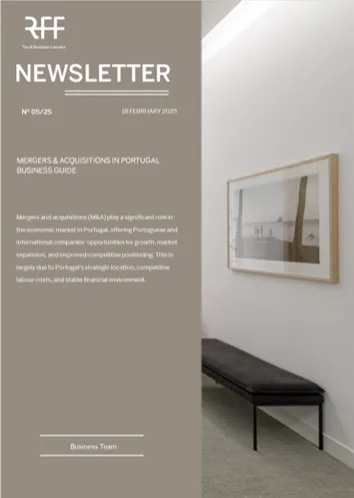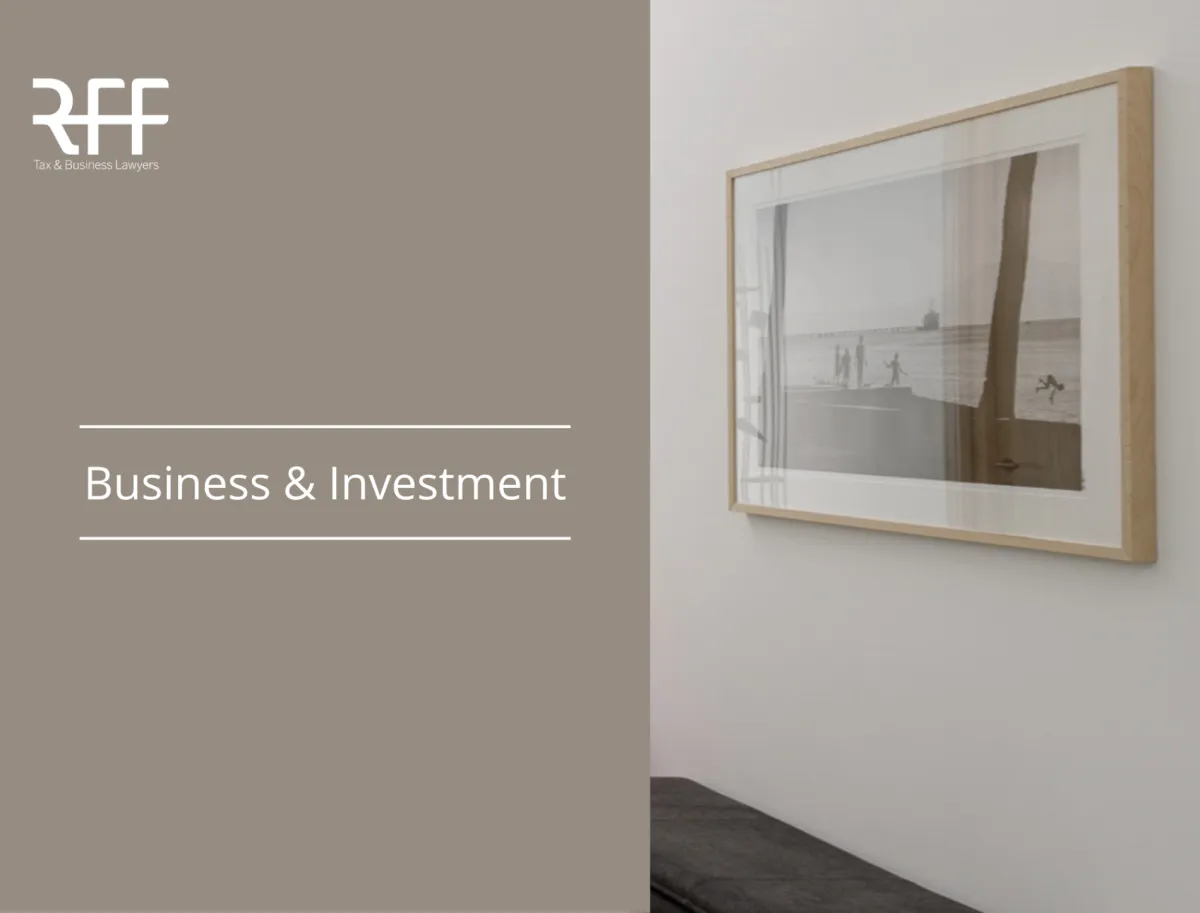Mergers & Acquisitions in Portugal - Business Guide

Mergers & Acquisitions in Portugal - Business Guide
Mergers and acquisitions (M&A) play a significant role in the economic market in Portugal, offering Portuguese and international companies’ opportunities for growth, market expansion, and improved competitive positioning. This is largely due to Portugal's strategic location, competitive labour costs, and stable financial environment.
INTRODUCTION
Mergers and acquisitions play a significant role in the economic market in Portugal, offering Portuguese and international companies’ opportunities for growth, market expansion, and improved competitive positioning.
Over the years, M&A activity has been influenced by both domestic factors, such as economic reforms and privatizations, and external drivers, such as foreign investment and global market trends.
As Portugal continues to modernize its business environment, M&A have become a crucial mechanism for the restructuring of industries, integration of innovative technologies and enhancement of productivity. This dynamic sector involves complex legal, financial, and strategic considerations, with various industries, including energy, technology, and real estate, experiencing the most notable deal-making activity.
Key trends in recent years include the growing number of cross-border acquisitions, with foreign investment playing a significant role in driving M&A activity. This is largely due to Portugal's strategic location, competitive labour costs, and stable financial environment.
LEGAL AND REGULATORY FRAMEWORK
M&A in Portugal are essentially governed by the Commercial Companies Code, which establishes the legal procedures, rights and obligations for the companies involved.
These operations are also regulated by the Portuguese Competition Authority (Autoridade da Concorrência) entity that plays a crucial role ensuring that such transactions do not obstruct competition or create dominant market players.
Competition Authority reviews proposed M&A deals that meet certain thresholds, assessing their potential impact on market competition. If the transaction is likely to significantly restrict competition, the authority can block the deal or impose conditions to mitigate anti-competitive effects.
This regulatory oversight helps maintain a fair and competitive business environment, aligning with both national and European Union competition laws.
M&A involving publicly traded companies in Portugal, are also monitored by the Portuguese Securities Market Commission (Comissão do Mercado de Valores Mobiliários - CMVM) ensuring that these transactions comply with security laws, aiming to protect investors and maintain market integrity.
CMVM is also responsible for overseeing disclosure requirements, ensuring that relevant information is transparently provided to shareholders and to the public.
Additionally, the commission monitors the fairness of the process, especially in terms of takeover bids, to safeguard minority shareholders' rights and prevent market manipulation or insider trading during M&A activities.
OPERATIONS
The stable economic environment, investor-friendly policies and the increasing globalisation of companies favour opportunities in the field of mergers and acquisitions in Portugal.
These operations encompass a variety of transactions, namely by mean of:
- Mergers, occurring when two companies combine to form a new entity or one company absorbs another
- Acquisitions, when one company purchases another company, this can be friendly (both companies agree on terms) or hostile (the Target company resists the takeover)
- Joint Ventures, when two or more companies join forces to jointly carry out a business project
- Corporate Restructuring to improve financial stability, streamline operations, or respond to regulatory changes, this can involve asset divestiture, spin-offs, or debt restructuring
- Private Equity and Venture Capital Investments, Portugal has seen a rise in private equity and venture capital investments, especially in startups and high-growth sectors like technology and renewable energy.
PRACTICAL PROCEDURES
The M&A process begins with a preliminary assessment where companies define their objectives, evaluate potential targets, and establish a clear strategy for the transaction.
This is followed by the due diligence process, which involves conducting financial, legal, and operational assessments to identify risks and opportunities.
Once due diligence is completed, regulatory approvals must be obtained to ensure compliance with Portuguese and EU regulations, including authorization from competition authorities or sector-specific regulators.
After securing regulatory clearances, companies proceed with negotiation and contracting, drafting key agreements such as (i) Letters of Intent (LOI), outlining the understanding between two or more companies, expressing their intention to formalize later in a legally binding agreement, LOI is usually not intended to be legally binding, except for the binding provisions included in the document, (ii) Sale and Purchase Agreements (SPA), covering details such as representations and warranties, price adjustment clauses, conditions precedent clauses, indemnity clauses and confidentiality and non-compete clauses and (iii) Shareholder Agreements.
Once agreements are finalized, transaction execution takes place, which includes completing financial settlements, transferring assets or shares, and implementing operational integration plans.
Finally, the post-merger integration phase focuses on merging business operations, corporate cultures, and human resources to ensure a seamless transition and maximize synergies.
TAX CONSIDERATIONS
Taxation is a natural and crucial vector to consider in any corporate restructuring transactions or acquisitions, as it may greatly impact the projected financial outcome of the deal.
Portugal’s tax legislation foresees key tax incentives available to M&A and restructurings, such as the participation exemption regime or the special tax neutrality regime on reorganizations, both applicable under specific conditions foreseen in the law.
Although the participation exemption regime only allows for a corporate income tax exemption, the available tax neutrality regimes on reorganizations in Portugal may also cover personal income tax or property taxes.
We note that the mentioned regimes are complex to navigate and, as such, obtaining proper legal advice is recommended prior to any corporate transaction or reorganization.
KEY SECTORS
Portugal's M&A landscape is particularly active in key sectors that attract both domestic and foreign investors.
The energy and renewables sector is a prime example, as Portugal's commitment to sustainability has spurred acquisitions in wind, solar, and hydroelectric energy.
The technology and startup ecosystem, especially in Lisbon and Porto, has also seen significant M&A activity, with innovative businesses attracting global interest.
Additionally, the real estate market continues to be a major area for investment, particularly in the residential and tourism segments.
Within this sector, the tourism and hospitality industry stand out due to Portugal's thriving tourism market, leading to frequent acquisitions in hospitality, travel, and leisure businesses.
CONCLUSION
M&A activity in Portugal continues to be robust, supported by a favourable business environment and increased interest from foreign investors.
The legal, regulatory, and tax frameworks in Portugal provide a clear structure for M&A transactions, while also ensuring competition and transparency.
***
Rogério Fernandes Ferreira
Marta Machado de Almeida
Patrícia Largueiras
Inês Dias de Pinho
Miriam Barbosa
Carolina Gomes Alves
